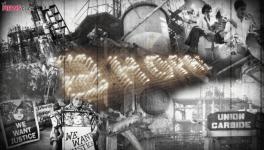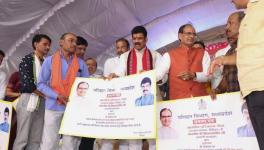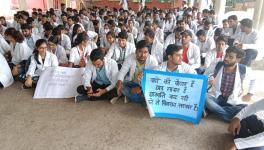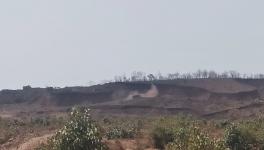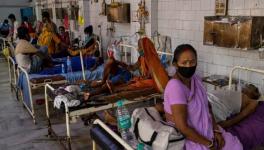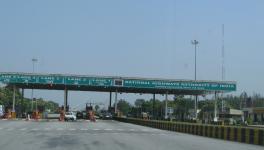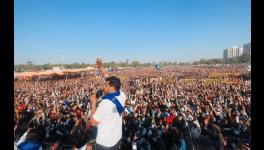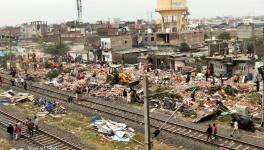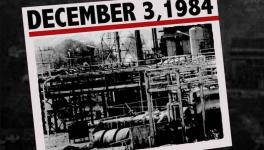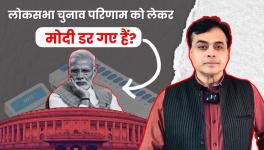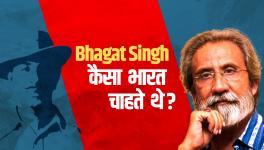Bhopal Gas Tragedy: Remembering Abdul Jabbar’s Struggle
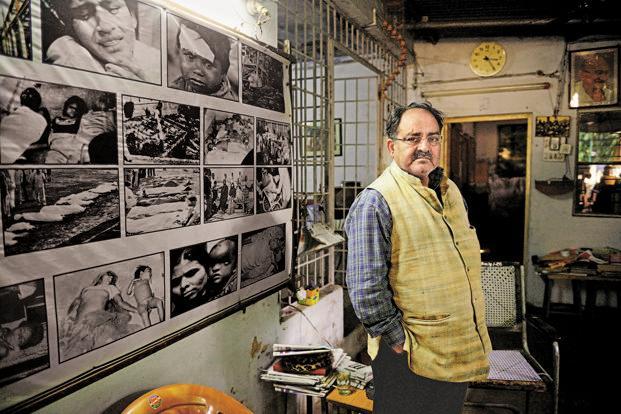
Image for representational use only.Image Courtesy : Livemint
Thirty five years after lethal Methyl Isocyanate MIC gas leaked out of the Union Carbide factory in Bhopal, Abdul Jabbar, a victim and crusader for the cause of other victims, passed away on 14 November 2019. He died at 62, three days after the Bhopal Memorial Hospital Research Centre, a super-specialty hospital set up to treat the survivors of India’s worst industrial tragedy, expressed its inability to treat him further.
Jabbar—Jabbar bhai to those who knew him—had no knowledge or training in the field of law or how relief operations should work, but he demonstrated the power of activism by raising his voice for a fight against the corporation responsible for the tragedy and the political and bureaucratic combine that suppressed its scale and impact.
On the intervening night of December 2 and 3 in 1984, Jabbar, his mother and brother had boarded their scooter to leave Bhopal for Obaidulaganj. When they left, they had already been exposed to the deadly gas, 40 tons of which had leaked from Union Carbide’s plant. The gas instantaneously choked over 5,000 people to death and resulted in respiratory, psychological and a host of other long-term illnesses that took another 25,000 lives over three decades. The absence of proper medical care was a big reason for the continued suffering and death of victims.
Abdul and his companions were severely wounded. At the time, he was only 28. He quit his occupation, of digging bore-wells, and began a new phase in his life, exploring the dark side of the broken promises that victims had to contend with and their fear of not regaining control over their lives ever again. Finally, without any knowledge of law or training in the field of non-governmental organisations, he studied law books and gleaned from them the skills to tactically combine the power of activism. Thus he started to distill the voices of the victims into their fight for justice.
Jabbar’s work affected political parties at the Centre and in the states. He pushed the bureaucracy to open training centres for the survivors in gas-affected areas. At one point, attempts were made to abruptly wind up the Indian Council for Medical Research teams that were documenting the causes of death in the city and to wind up the training centres as well. Jabbar bhai’s Bhopal Gas Peedit Mahila Udyog Sangathan (BGPMUS) ensured that women were employed in his organisation, where they produced jute bags or learned embroidery (zardozi) work and other skills.
Jabbar persistently raised demands for the survivors to get relief. In the late nineties, his organisation approached the Supreme Court, urging it to order interim relief to the survivors until they get their final compensation. The court, however, announced a settlement with the Union Carbide for $470 million or Rs 7,200 crore. Then his organisation appeared before the apex court, which got a further Rs1,503 crore compensation to over 5,70,000 claimants, from the earlier grossly underestimated figure of 1,00,000 documented claimants.
His efforts provided cheer to the claimants in the gas-affected areas of Bhopal, and his whole-hearted belief in the court was also strengthened. However, Jabbar bhai’s agenda to ensure the victims get assistance, including the hundreds of widows and orphans. This fight was far from over. For 34 years he kept approaching the courts seeking compensation, housing, hospitals, proper medical care and for the perpetrators to be prosecuted. His struggle became one of love, faith and hope, which gave meaning and identity to the gas victims.
While his organisation held protests, took to the streets, challenged government orders in the court and fought cases; he became a subject of litigation, too. Cases were lodged against him to suppress the movement. Recalling one case lodged against him, Jabbar had said, laughing, “I was accused of cutting off the a woman’s long hair. It was quashed after the woman failed to recognise the person who allegedly cut her hair.” But on most occasions, warrants were served on him right after he announced a mass protest or whenever an anniversary of the Bhopal gas tragedy approached.
Jabbar bhai also took care of other woes of Bhopal—from the choking of the nallah (drain) in Gas Vidhwa Colony to the distribution of clean water in the slums opposite the Union Carbide pesticide plant; from early repairs for the potholed roads to identifying drains that are discharging waste into the Upper Lake in Bhopal; to raising his voice against the dumping of waste on the green section of Yadgaar-e-Shahjehani park, nothing escaped his attention.
He demanded that the administration should not allow speed boats and cruises on the Bada Talab during the winter season, when migratory birds land at the Van Vihar National Park, an Important Bird Areas designated site, and his range covered international events—he condemned the 9/11 airline hijackings and suicide attacks and the attack on Malala Yousafzai, a Pakistani activist.
Every person who had the privilege of knowing him shared a unique bond with him and he left a deep impact on them. “He was a walking encyclopedia on Bhopal gas tragedy. Jabbar bhai could tell anyone the numbers and nature of cases against governments, Union Carbide, with dates, correctly stating the judgments pronounced by the courts and the current status of the cases,” says Ashutosh Shukla, a senior journalist in Bhopal.
In 1986, his organisation started gathering twice a week at Bhopal’s Yaadgaar-i-Shahjahani park, the historic site where the battle against British colonial rulers was staged in 1942. In 1993, the twice-weekly meeting was converted to weekly Saturday meeting, which continues till date.
The self-made humble activist lived in a one-room asbestos-roofed accommodation, shared a common toilet with his younger brother’s family and left behind a liability of Rs 3 lakh—the school fees of his three children in Classes 5, 7 and 9, and a pending electricity bill of nearly 23,000, pending water connection charges and a loan of over Rs 1 lakh. He has also left behind an oft-repeated statement: that his job is only to awaken people in power; both in the administration and in politics. “And after that,” he would say, “I am no longer needed.”
His work was a clear reflection of the person he was: not always disciplined yet perpetually concerned about all around him, sympathetic yet powerful, precise yet enthusiastic, controlled yet unrestrained, structured yet visionary and always convincing. This year, on the 35th-anniversary of Bhopal gas tragedy, Jabbar bhai’s group would once again raise the voices of the survivors, but only without him.
The writer is a freelance journalist based in Bhopal. The views are personal.
Get the latest reports & analysis with people's perspective on Protests, movements & deep analytical videos, discussions of the current affairs in your Telegram app. Subscribe to NewsClick's Telegram channel & get Real-Time updates on stories, as they get published on our website.









